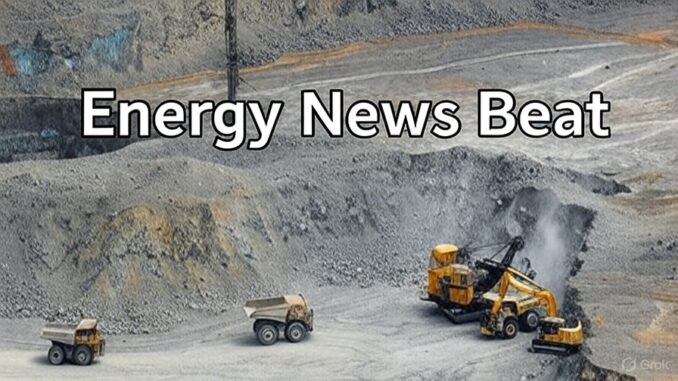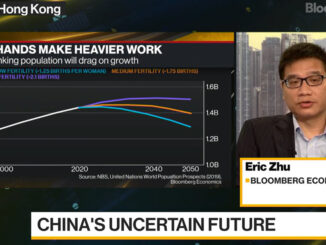
In a bold move that underscores the Trump administration’s aggressive strategy to secure America’s supply chains, U.S.-based REAlloys Inc. has inked a groundbreaking Memorandum of Understanding (MoU) with Japan’s government-backed Japan Organization for Metals and Energy Security (JOGMEC). This deal, announced just days after Japan’s historic election of its first female prime minister, ultraconservative Sanae Takaichi, signals a deepening alliance between the two nations to counter China’s stranglehold on critical minerals and rare earth elements (REEs).
Takaichi, a hardline conservative often dubbed Japan’s “Iron Lady” for her admiration of Margaret Thatcher, assumed office on October 21, 2025, following a parliamentary vote that marked a pivotal shift in Japanese leadership.
Her election comes at a time when Tokyo is ramping up efforts to diversify its resource dependencies, aligning perfectly with the U.S. push under President Trump to reshore critical mineral processing and manufacturing. Takaichi’s staunch support for a stronger military and economic resilience echoes Trump’s “America First” policies, making this partnership a natural fit in the face of global geopolitical tensions.
Details of the U.S.-Japan Agreement
The MoU establishes a framework for joint development, technology transfer, and industrial cooperation aimed at bolstering secure supply chains for rare earth alloys and high-performance magnets. JOGMEC, under Japan’s Ministry of Economy, Trade and Industry (METI), will license advanced separation and magnet-fabrication technologies to REAlloys’ North American facilities. This includes scaling up production of neodymium-iron-boron (NdFeB) and samarium-cobalt (SmCo) magnets, which are vital for defense systems, electric vehicles (EVs), semiconductors, and renewable energy technologies.
REAlloys, which is merging with Blackboxstocks Inc. (NASDAQ: BLBX), brings to the table its vertically integrated operations: upstream mining in Saskatchewan, midstream separation in Saskatoon, and planned downstream magnet production in Ohio. In return, Japan gains access to scandium and yttrium from REAlloys’ Hoidas Lake project, along with offtake arrangements for rare earth supplies. The deal also opens the door to JOGMEC financing and potential joint research on seabed resources and strategic autonomy.
Leonard Sternheim, REAlloys’ CEO, hailed the partnership as a fusion of Japanese technological prowess with North American resources, accelerating self-sufficiency. JOGMEC’s Hiroshi Kubota echoed this, calling it a model for allied resilience against supply disruptions.
This marks JOGMEC’s first formal tie-up with an American rare earth producer, expanding its diversification beyond Australia and Africa.
Broader Context: Trump’s Full-Court Press on Critical Minerals
This U.S.-Japan deal doesn’t stand alone—it’s part of the Trump administration’s relentless drive to dismantle China’s dominance in rare earths, where Beijing controls over 80% of global refining and magnet production.
Recent Chinese export restrictions on gallium, germanium, and REE technologies have only heightened the urgency.
Just yesterday, on October 22, 2025, President Trump signed a historic Critical Minerals Framework Agreement with Australian Prime Minister Anthony Albanese, committing over $3 billion in joint investments for mining and processing projects, with a pipeline potentially reaching $8.5 billion.
This includes U.S. Export-Import Bank (EXIM) financing of $2.2 billion and Australian equity of $200 million, targeting minerals like lithium, nickel, cobalt, and REEs. A standout project is Alcoa’s gallium plant in Western Australia, poised to supply 10% of the global market for semiconductors.
Trump described the Australian pact as “unprecedented” in its speed and scale, promising an overflow of critical minerals within a year.
It builds on executive orders from earlier in 2025, such as those mandating immediate measures to boost American mineral production and reduce reliance on adversarial nations.
Companies like MP Materials (NYSE: MP), with its Mountain Pass mine, have already benefited from Department of Defense contracts, while others such as Energy Fuels (NYSE: UUUU) and Lynas Rare Earths (OTC: LYSDY) stand to gain from these alliances.
Strategic Implications for Energy and National Security
These back-to-back deals represent a full-court press by the Trump administration to reshore processing and foster Western-aligned supply chains. By partnering with allies like Japan and Australia, the U.S. aims to mitigate vulnerabilities exposed by global conflicts and trade wars. For Japan under Takaichi, this means enhanced economic security and military strength without over-reliance on China.
In the energy sector, secure REE supplies are crucial for EVs, wind turbines, and grid infrastructure—key to America’s clean energy goals without compromising sovereignty. As Trump pivots from foreign entanglements like Ukraine to domestic manufacturing, these agreements could lower costs, boost jobs, and position the U.S. as a global leader in critical minerals.
Market reactions have been swift: Shares in Australian firms like Arafura Rare Earths (ASX: ARU) and Lynas surged post-announcement, while U.S. players like Alcoa (NYSE: AA) and MP Materials eye expanded opportunities.
With Takaichi’s conservative leadership in Tokyo reinforcing these ties, expect more collaborations ahead, potentially extending to Canada and Greenland.
This is more than diplomacy—it’s a strategic offensive to reclaim control over the resources powering the future. The Trump administration’s vision is clear: America, with its allies, will lead the way in critical minerals, leaving dependencies in the dust.
Got Questions on investing in oil and gas? Or do you have a Tax Burden in 2025?
Crude Oil, LNG, Jet Fuel price quote
ENB Top News
ENB
Energy Dashboard
ENB Podcast
ENB Substack






